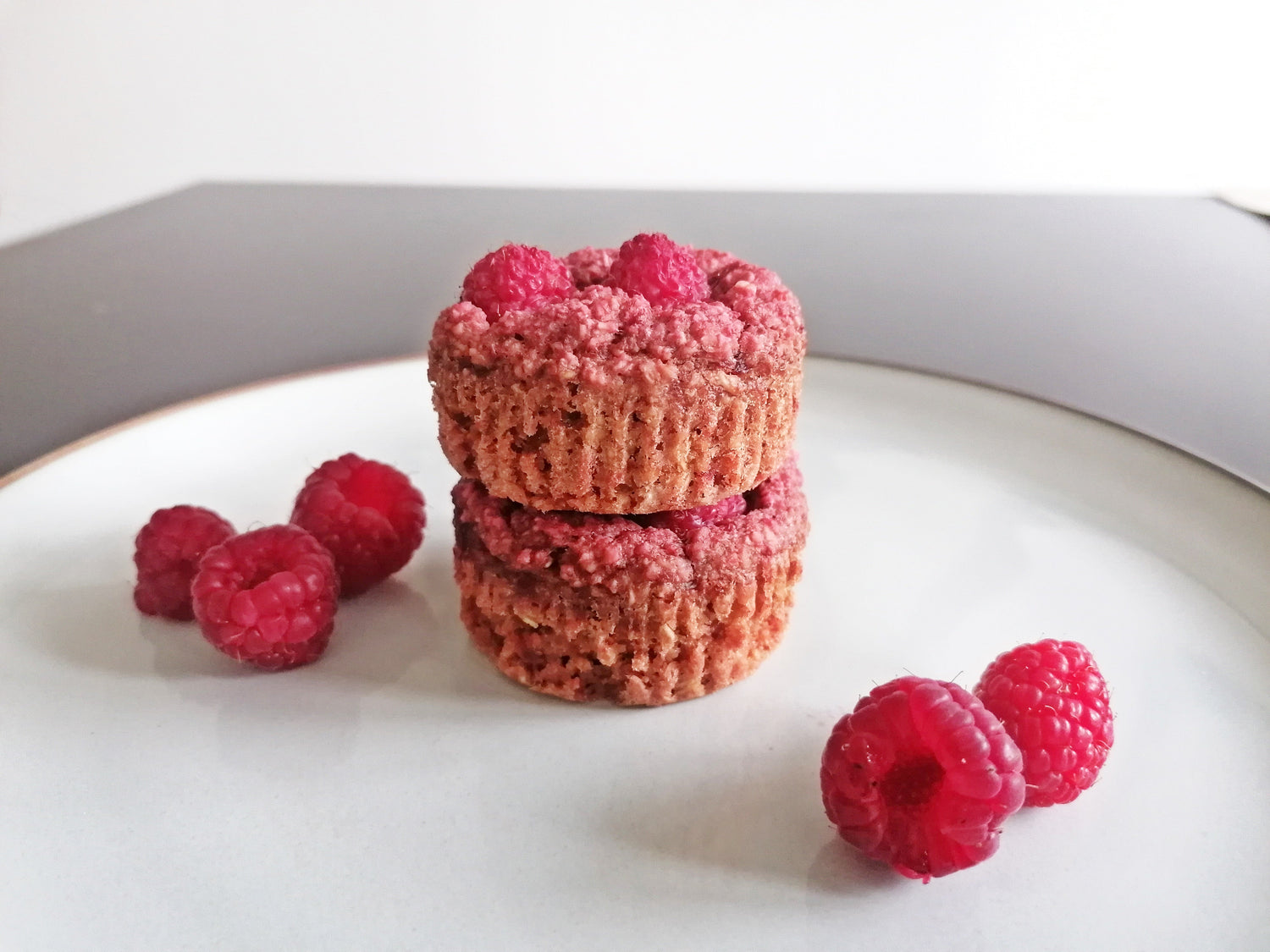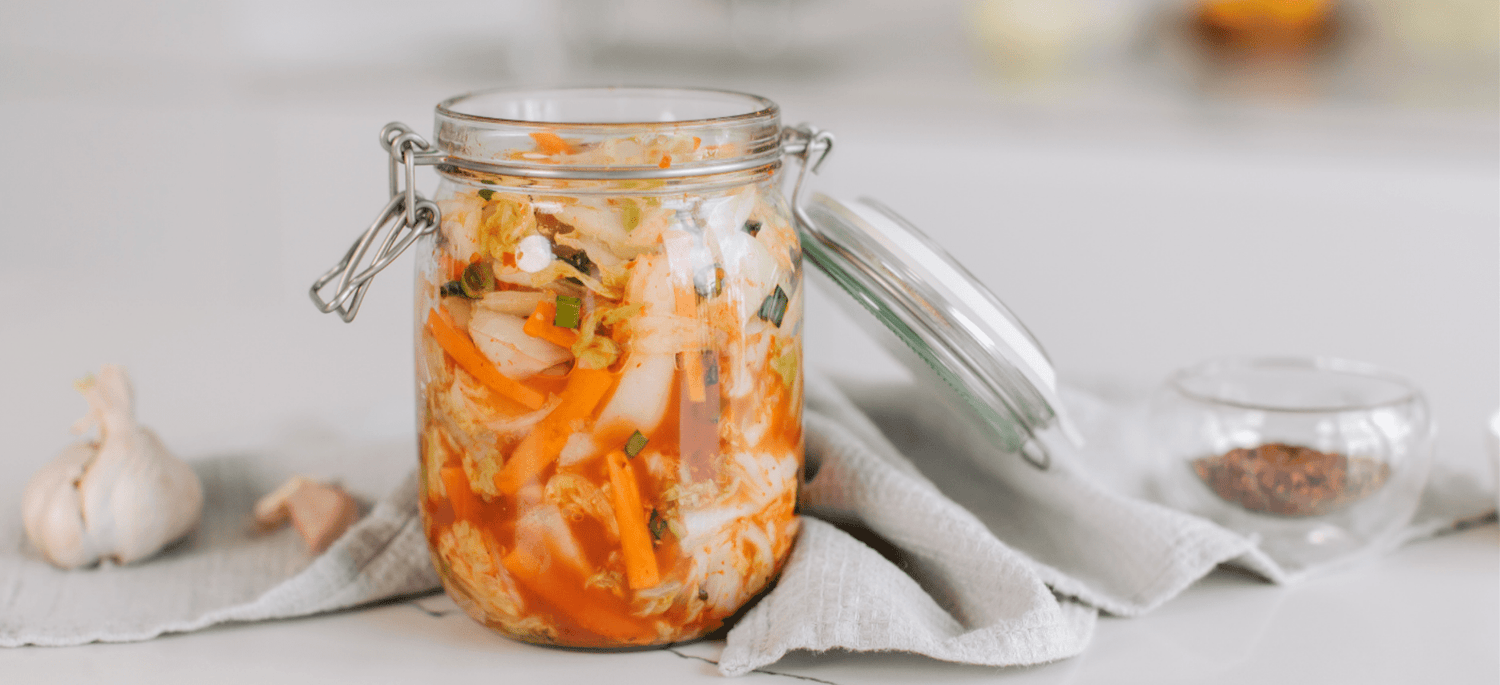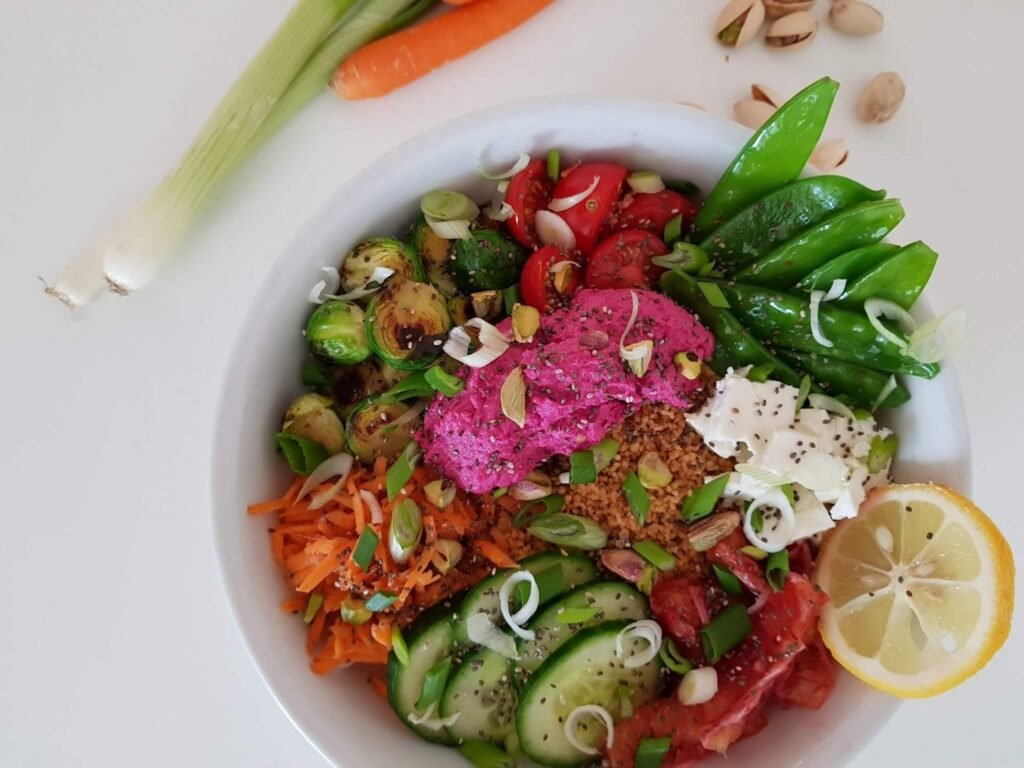Who doesn't love cake for breakfast? Our colorful breakfast muffins featuring beetroot demonstrate how effortlessly you can entice even the pickiest eaters with veggies. They're great for meal prep and conveniently fit into your kids' lunchbox. These nutritious muffins don't contain any added sugar or sweeteners and make an excellent breakfast or afternoon treat - not only for kids but also for us adults!
By the way, the gut microbiome, also referred to as gut flora, plays a pivotal role in children's development and can significantly impact their long-term health. You can delve deeper into this topic further down in this blog post. But for now, let's get baking!
Recipe: Healthy muffins with beetroot
Sugar-free, high in fiber, vegan, and packed with nutrients for a healthy gut microbiome.
Ingredients
- 200 g oats
- 2 very ripe bananas (the riper, the sweeter their taste)
- 150 ml oat milk (provides natural sweetness - ensure no added sugar in the ingredients)
- 50 g white almond butter (or another unsweetened nut butter of your choice)
- 200 g cooked beetroot
- 2 tsp baking powder
- about 150 g raspberries
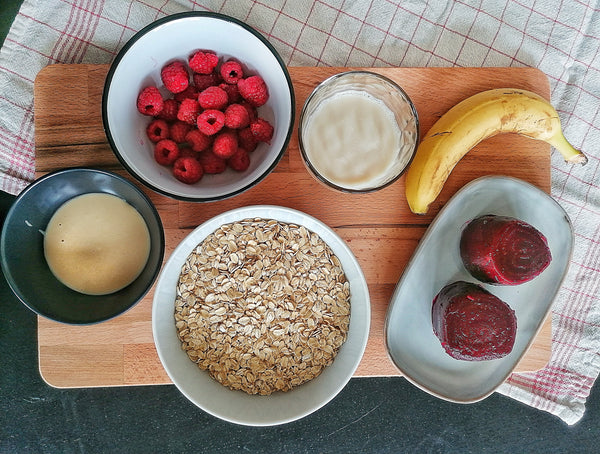
Preparation
- Preheat your oven to 180°C.
- Place the oats in a blender and process them to create oat flour.
- Transfer the oat flour to a large bowl and mix in 2 teaspoons of baking powder.
- In the blender combine the cooked beetroot with the bananas, oat milk, and nut butter until you achieve a smooth, pink consistency.
- Transfer the pink mixture to the bowl with the flour and combine until you have a smooth batter.
- Spoon the batter into muffin pan cups.
- Top each muffin with 1-3 raspberries. While optional, raspberries provide excellent nutrients, flavor, and enhance the appealing color. You can use fresh or frozen berries.
- Bake the muffins in the preheated oven for 25-30 minutes.
- Enjoy the muffins served either warm or cooled. You can store them in the refrigerator for several days or freeze them for later consumption.
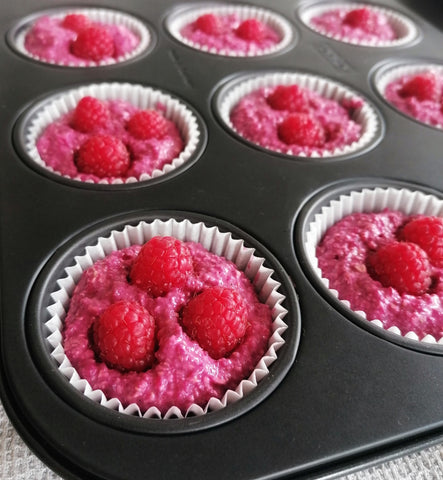
Tip: Instead of making muffins, you can also cook the ingredients in a pot and serve as pink porridge, or fry the batter as pancakes in a pan using a small amount of oil.
What makes these muffins so nutritious?
Indeed, all the elements in these breakfast muffins are genuine nutritional powerhouses, rendering them an ideal snack for hungry children. However, two ingredients are particularly notable:
Oats
As a whole-grain product, oats boast an array of essential vitamins, minerals, and proteins. Furthermore, they are rich in fiber - the favorite food of your gut bacteria. Notably, oats contain a particularly advantageous, prebiotic fiber called ß-glucan (1). A fiber-rich diet is recommended from the first months of life, as it aids in fostering a diverse microbiome in children. Consequently, this inhibits harmful microorganisms in the digestive tract, ensuring the child's overall fitness and health (2). Additionally, whole-grain products offer prolonged satiety and ample energy for a great day at kindergarten or school.
Beetroot
Beets not only lend our muffins their vibrant hues but also bring essential nutrients into play: Beetroot is notably abundant in potassium, magnesium, iron, zinc, B vitamins, folic acid, and provitamin A. The intense coloration of beetroot stems from secondary metabolites of plants known as polyphenols. These not only contribute to the beauty of the vegetable but also deliver anti-inflammatory and immune-boosting properties (3).
Furthermore, we advocate for the inclusion of grated vegetables in cakes, as they contribute to a wonderfully moist texture. This secret has contributed to the widespread popularity of carrot cake, to set an expamle. Additionally, it's a great trick to sneak vegetables into picky children's diets without them even noticing. Should you find the taste of beetroot overly earthy in other dishes, this recipe is a perfect solution - as the earthy notes are masked by the combination with the other sweet-tasting ingredients.
If beetroot has been absent from your culinary repertoire thus far, we strongly encourage you to give it a try. A varied, colorful diet not only tantalizes the taste buds but also provides nourishment for your diligent gut bacteria.
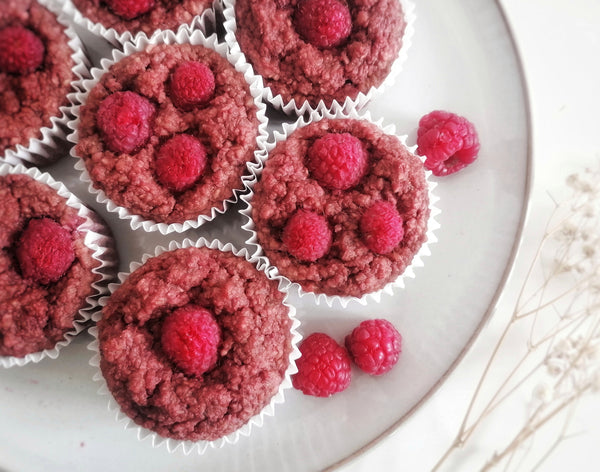
Fascinating insights: Children and the gut microbiome
Why is the myBioma Gut Microbiome Test not suitable for children?
At myBioma, we prioritize delivering scientifically validated results and recommendations. Research into children's microbiomes is still in its infancy, with scarce and inconsistent reference values available. Children's microbiomes undergo rapid changes, making it challenging to provide meaningful analysis results. Therefore, we recommend our test only after puberty. Should you still wish to analyze your child's gut microbiome, we advise consulting a doctor first.
What we do know for certain is the crucial importance of a healthy, balanced diet, and nurturing mental well-being from a young age. Hence, we encourage all parents to provide their children with ample love and nutritious food.
Our children's book: The Gut Heroes - On an adventure through the microbiome
Because we deeply care about the youngest members of our society, we've crafted an engaging children's book with charming illustrations, available in our online store. This captivating picture story introduces children to the workings of digestion in a playful manner, whisking them away into the adventorous world of gut bacteria, guided by the Gut Heroes: Biffi Bifidobacterium, Candi Candida, and Mica Microvirus. Following the journey, children are encouraged to unleash their creativity: interactive pages invite them to write and draw, fostering a fun and educational exploration of how to maintain a healthy and happy gut.
Only available in german.

References
- Glei M, Schlörmann W. (2017) Potential health benefits of β-glucan from barley and oat. Ernährungs Umschau 64(10): 145–149.
- Yang I, Corwin EJ, Brennan PA, Jordan S, Murphy JR, Dunlop A. (2016). The Infant Microbiome: Implications for Infant Health and Neurocognitive Development. Nurs Res. 2016;65(1):76–88.
- Bundeszentrum für Ernährung (BZfE) (2019). Rote Bete. Neue Sorten für bunte Vielfalt. Online unter: https://www.bzfe.de/service/news/aktuelle-meldungen/news-archiv/meldungen-2019/dezember/rote-bete/
- Kapourchali FR, Cresci GAM. (2020). Early‐Life Gut Microbiome—The Importance of Maternal and Infant Factors in Its Establishment. Nutr Clin Pract. 2020;35(3):386–405.



